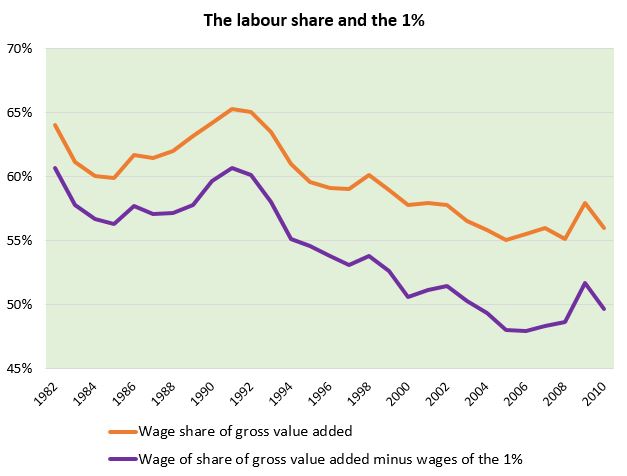I spoke at an event dedicated to Piketty’s Capital in the Twenty-First Century last night in Vancouver. It was great to have a conversation about inequality, economics and politics with an overflowing, diverse crowd. There is a palatable hunger for an understanding of what is going on today and what kind of political action can generate broad-based mobilization.
I’m posting my slides from that discussion here. They focus on the theory in Piketty’s work and are partly expository as one of the aims of the event was to introduce the arguments of the book. However, I have tried to raise some substantive points about how the book and its myriad empirical observations open the door to future avenues of exploration — especially exploration that takes politics seriously and wants to deepen the tradition of political economy.
One of the fruitful things about the book is door it opens out of the stuffy rooms of neoclassical economics back towards political economy. All the more important, however, to remember the task of carrying out a “Critique of Political Economy” (the subtitle of that other Capital): a serious engagement that is at once a serious critique.
